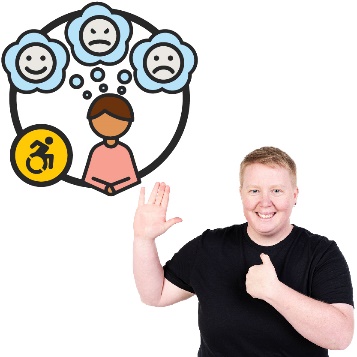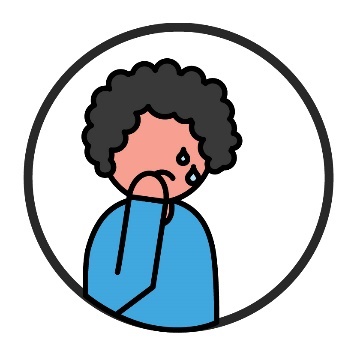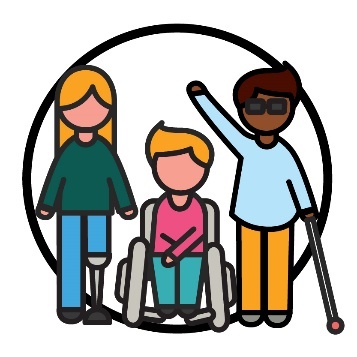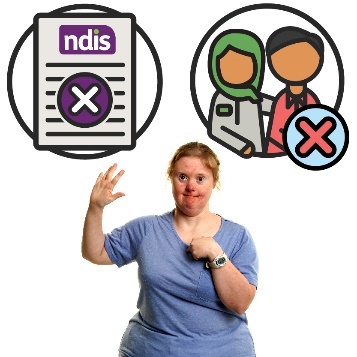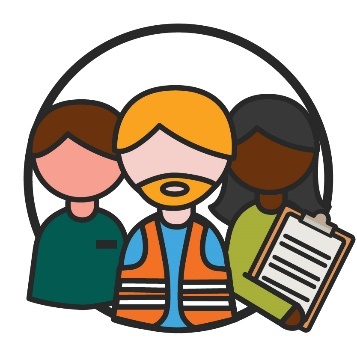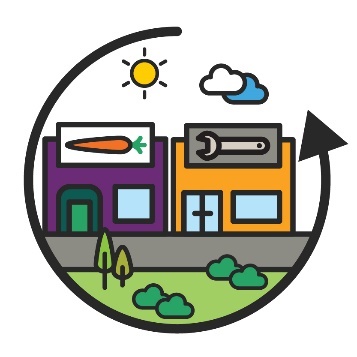Our reports
| The Reference Group connected with the community to find out about issues that affect them. |
| The Reference Group members shared these issues with the NDIA. |
What did the reports talk about?
NDIS access and planning
| Reference Group Members shared that the NDIS still focuses on what participants can’t do. |
| They think the NDIS should think more about what participants can do. |
| Members also think the NDIS can do more to support participants with psychosocial disability. |
| A psychosocial disability affects your mental health. It can affect how you:
|
| Members also shared that it is hard for First Nations peoples to find and use services and supports. This includes the NDIS. |
| There aren’t enough supports close to First Nations peoples. |
| This includes housing. |
This also includes people who support them to: | |
|
|
|
|
| Members also told us it is hard for First Nations peoples to get supports in the justice system. For example, supports in court or prison. |
Challenges using services and supports
| Reference Group members shared challenges with supported decision-making. |
| Supported decision-making is when someone helps you make important decisions about your life and how you will live. |
| They explained the NDIA’s supported decision‑making policy will be important. |
| A policy is:
|
| Reference Group members also told us it is getting harder for participants to get positive behaviour supports. Positive behaviour supports are ways to support how a participant acts or behaves. |
| Some participants have to use different types of support instead. |
| Members also shared that people with disability are happy the NDIA is doing research. |
| But some people worry it will be hard for the NDIA to make supports and services better using research. |
Psychosocial disability
| The community worry people running the NDIA don’t have enough lived experience of disability. |
| If you have lived experience of disability, you:
|
| The community really worry the people running the NDIA don’t know enough about psychosocial disability. |
| Members also explained there are challenges with support for psychosocial disability. |
| Some service providers say it is harder to find skilled workers with experience. And they have to pay unskilled workers the same. |
| Providers deliver services to people with disability. |
| Members worry that services and supports might not be good quality. And participants will have less choice and control. |
| Some psychosocial providers also say it costs too much money to have good support workers. |
| Members worry other providers might try to provide these supports. But they might not have the right skills. |
Funding
| Reference Group members shared that some providers have changed what type of NDIS funding they use for supports and services. |
| Funding is the money from your plan that pays for the supports and services you need. |
| This means some people can’t use their funding for the supports and services they need because they have a different type of funding. |
| Some people with disability live in homes where people can rent a bedroom. |
| But some of these homes cost a lot of money. |
| This makes it hard for people who get support from the government. For example, the disability support pension (DSP). |
| The DSP is a payment from the government to help with your day-to-day living costs. |
Allied health professionals
| Allied health professionals support people with their health care. |
| Reference Group members shared that participants want to use allied health professionals. |
| Participants don’t know which allied health professionals they can use with their funding. They also don’t know when the NDIS gives funding for allied health professionals. |
Supporting participants
| Reference Group members explained that NDIA staff need more training to support all participants. |
This includes making sure they know how to support participants: | |
|
|
|
|
|
|
| Trauma is something bad that happens to you that can make you feel:
|
| Reference Group members explained some participants think the NDIS focuses on disabilities that people can see. |
| People want the NDIS to do more to support participants with disabilities people can’t see. |
| Reference Group members explained that people who live away from cities and towns should still get good support. |
| This is more important when an emergency happens. For example, a flood. |
Other services and supports
| Reference Group members shared some challenges with other supports and services. |
| The NDIS should do more to make sure participants who need support in their home are safe. |
| Members also think there are not enough psychosocial supports for people who can’t use the NDIS. |
| Some businesses only employ people with disability. They are called Australian Disability Enterprises. But some people think this keeps people with disability away from other people. |
| More people in the community want all businesses to be inclusive for people with disability. |
Our reports
| The Reference Group connected with the community to find out about issues that affect them. |
| The Reference Group members shared these issues with the NDIA. |
What did the reports talk about?
NDIS access and planning
| Reference Group Members shared that the NDIS still focuses on what participants can’t do. |
| They think the NDIS should think more about what participants can do. |
| Members also think the NDIS can do more to support participants with psychosocial disability. |
| A psychosocial disability affects your mental health. It can affect how you:
|
| Members also shared that it is hard for First Nations peoples to find and use services and supports. This includes the NDIS. |
| There aren’t enough supports close to First Nations peoples. |
| This includes housing. |
This also includes people who support them to: | |
|
|
|
|
| Members also told us it is hard for First Nations peoples to get supports in the justice system. For example, supports in court or prison. |
Challenges using services and supports
| Reference Group members shared challenges with supported decision-making. |
| Supported decision-making is when someone helps you make important decisions about your life and how you will live. |
| They explained the NDIA’s supported decision‑making policy will be important. |
| A policy is:
|
| Reference Group members also told us it is getting harder for participants to get positive behaviour supports. Positive behaviour supports are ways to support how a participant acts or behaves. |
| Some participants have to use different types of support instead. |
| Members also shared that people with disability are happy the NDIA is doing research. |
| But some people worry it will be hard for the NDIA to make supports and services better using research. |
Psychosocial disability
| The community worry people running the NDIA don’t have enough lived experience of disability. |
| If you have lived experience of disability, you:
|
| The community really worry the people running the NDIA don’t know enough about psychosocial disability. |
| Members also explained there are challenges with support for psychosocial disability. |
| Some service providers say it is harder to find skilled workers with experience. And they have to pay unskilled workers the same. |
| Providers deliver services to people with disability. |
| Members worry that services and supports might not be good quality. And participants will have less choice and control. |
| Some psychosocial providers also say it costs too much money to have good support workers. |
| Members worry other providers might try to provide these supports. But they might not have the right skills. |
Funding
| Reference Group members shared that some providers have changed what type of NDIS funding they use for supports and services. |
| Funding is the money from your plan that pays for the supports and services you need. |
| This means some people can’t use their funding for the supports and services they need because they have a different type of funding. |
| Some people with disability live in homes where people can rent a bedroom. |
| But some of these homes cost a lot of money. |
| This makes it hard for people who get support from the government. For example, the disability support pension (DSP). |
| The DSP is a payment from the government to help with your day-to-day living costs. |
Allied health professionals
| Allied health professionals support people with their health care. |
| Reference Group members shared that participants want to use allied health professionals. |
| Participants don’t know which allied health professionals they can use with their funding. They also don’t know when the NDIS gives funding for allied health professionals. |
Supporting participants
| Reference Group members explained that NDIA staff need more training to support all participants. |
This includes making sure they know how to support participants: | |
|
|
|
|
|
|
| Trauma is something bad that happens to you that can make you feel:
|
| Reference Group members explained some participants think the NDIS focuses on disabilities that people can see. |
| People want the NDIS to do more to support participants with disabilities people can’t see. |
| Reference Group members explained that people who live away from cities and towns should still get good support. |
| This is more important when an emergency happens. For example, a flood. |
Other services and supports
| Reference Group members shared some challenges with other supports and services. |
| The NDIS should do more to make sure participants who need support in their home are safe. |
| Members also think there are not enough psychosocial supports for people who can’t use the NDIS. |
| Some businesses only employ people with disability. They are called Australian Disability Enterprises. But some people think this keeps people with disability away from other people. |
| More people in the community want all businesses to be inclusive for people with disability. |








































